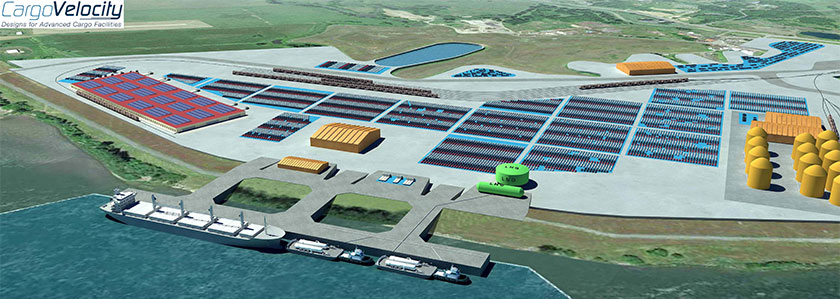The General Manager, Special Duties of the Nigerian Ports Authority (NPA) Capt. Ihenacho Ebubeogu, has stressed the need for a Port Master Plan to cover the maritime industrial environment.

Ebubeogu said this during a Strategy Group Meeting organised by the Chamber of Shipping to facilitate the Ease of Doing Business in Nigerian Ports held in Lagos on Wednesday, March 6, 2019.
He said community interference on government right of way had been hindering the development of the Western ports.
According to him, the port in Port Harcourt and railway line to Enugu were constructed following the discovery of coal in Enugu.
“Presently our investigation shows that some people have built houses on the rail line.
“As we are building ports, we should not consider port plan but port master plan because a port plan only covers the jurisdiction of the port, while a port master plan is planned to consider the port and its maritime industrial environment.
“If NPA had a master plan, the whole of Creek Road in Apapa will have been added to the port environment because port master plan is to regulate the tenancy in that particular environment.
“If Creek Road had been included in the port master plan, there is no way tank farms can be very close to the port.
“Issue of customs mounting various checkpoints is affecting Ease of Doing Business because time is money,” Ebubeogu said.
He said that there was need to develop the deep seaports while the existing ports should be designated as transhipment ports and improve on Inland Container Depots (ICDs) to revive shipping business in the country.
Ebubeogu said that it was important to look at port infrastructure such as channel, the port itself and the geographical area the port would cover for importation and exportation of goods and services.
Also speaking, retired Rear Adm. Dele Ezeoba, said that there was need to renew the waterways for safe passage and ensure good navigation all year round.
He said that there should be availability of integrated communication system which would allow for local and prompt reporting of incidences at sea.
“If a ship in our waters has an accident, the first place that gets a message is International Maritime Bureau (IMB) in Singapore and the IMB will now call Lagos.
“What could have become a simple misunderstanding between two people is translated to piracy and that has consequential effect on the cost of doing business in Nigeria.
“To stop the issue of piracy in Nigeria, we need to improve safety awareness by seafarers. From experience, we have come to realise that no thief will go to steal in a place he doesn’t know,” Ezeoba said.
He said that nine of 10 reported cases of piracy in our waters had an insider information.
According to him, there should be a well articulated security, communication and enhanced welfare of the crew of vessels and standard global practices to improve professionalism.
Ezeoba said that Nigerian security agencies, including the NIgerian Maritime Administration and Safety Agency (NIMASA), had synergies in improving the security operations on the waterways through surveillance, response initiative and enforcement.
The President, Nigerian Chamber of Shipping (NCS), Mr Andy Isichei, said that underutilisation of Western ports had negative impact on the economy as a result of constant gridlock on the port access road.
Isichei said the constant gridlock on ports access road had constituted a danger to public infrastructure when the bridges had turn to parking lot.
He attributed the gridlock on port road to many cargoes designated to western ports and inefficiency of the water channels of Eastern ports which could not accommodate bigger vessels.
In his contribution, the former Director, Center for Logistics and Transport Studies, University of Port-Harcourt, Prof. Osi Akpoghomeh, said that inefficient port system had accumulated the congestion on the sea as well as the land.
Akpoghomeh urged the Federal Government to improve on road infrastructure to stop the constant traffic.
By Aisha Cole
